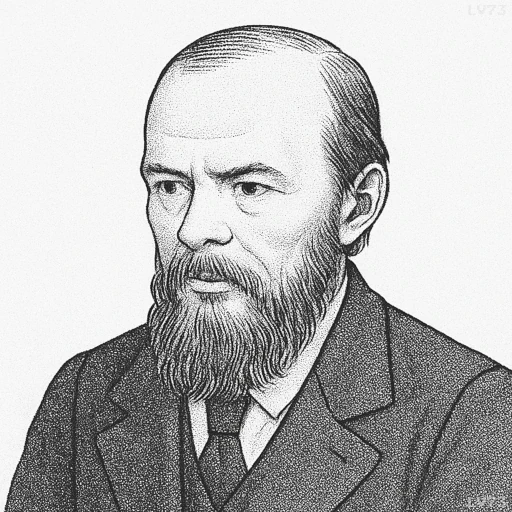“Man only likes to count his troubles, but he does not count his joys.”

- November 11, 1821 – February 9, 1881
- Born in the Russian Empire
- Novelist, philosopher
table of contents
Quote
“Man only likes to count his troubles, but he does not count his joys.”
Explanation
In this quote, Dostoevsky reflects on the human tendency to focus on negative experiences rather than appreciating the positive ones. He suggests that people are often more preoccupied with counting their troubles, as if difficulties are more real or more important than moments of joy. This bias toward suffering may be rooted in a psychological phenomenon known as negativity bias, where negative experiences have a greater emotional impact than positive ones. Dostoevsky’s insight emphasizes the disproportionate weight we place on our hardships, which may overshadow the moments of happiness or contentment that come our way.
This view aligns with Dostoevsky’s exploration of the struggles and suffering inherent in the human condition, a central theme in his novels. Throughout his work, characters often face profound existential crises, moral dilemmas, and emotional turmoil. Yet, Dostoevsky understood that joy, however fleeting, was equally crucial in the balance of life. His quote may be seen as a critique of the way people overlook or dismiss happiness in favor of focusing on their burdens, a pattern that can lead to pessimism or despair. In a world full of suffering, joy can seem trivial or secondary, but Dostoevsky reminds us that it too has its place.
In the context of modern life, this quote resonates in today’s stressful and fast-paced society, where many people are more inclined to share their complaints than their gratitude. With the constant bombardment of negative news, economic instability, and personal pressures, it’s easy to forget the small joys—whether it’s a moment of peace, a kind gesture, or a fleeting sense of satisfaction. The quote encourages us to step back and acknowledge the good, not just the bad, challenging the tendency to take the good things in life for granted. In a way, it serves as a call for mindfulness and appreciation, suggesting that counting one’s joys, rather than dwelling on troubles, can lead to a more balanced and fulfilling life.
Would you like to share your impressions or related stories about this quote in the comments section?
